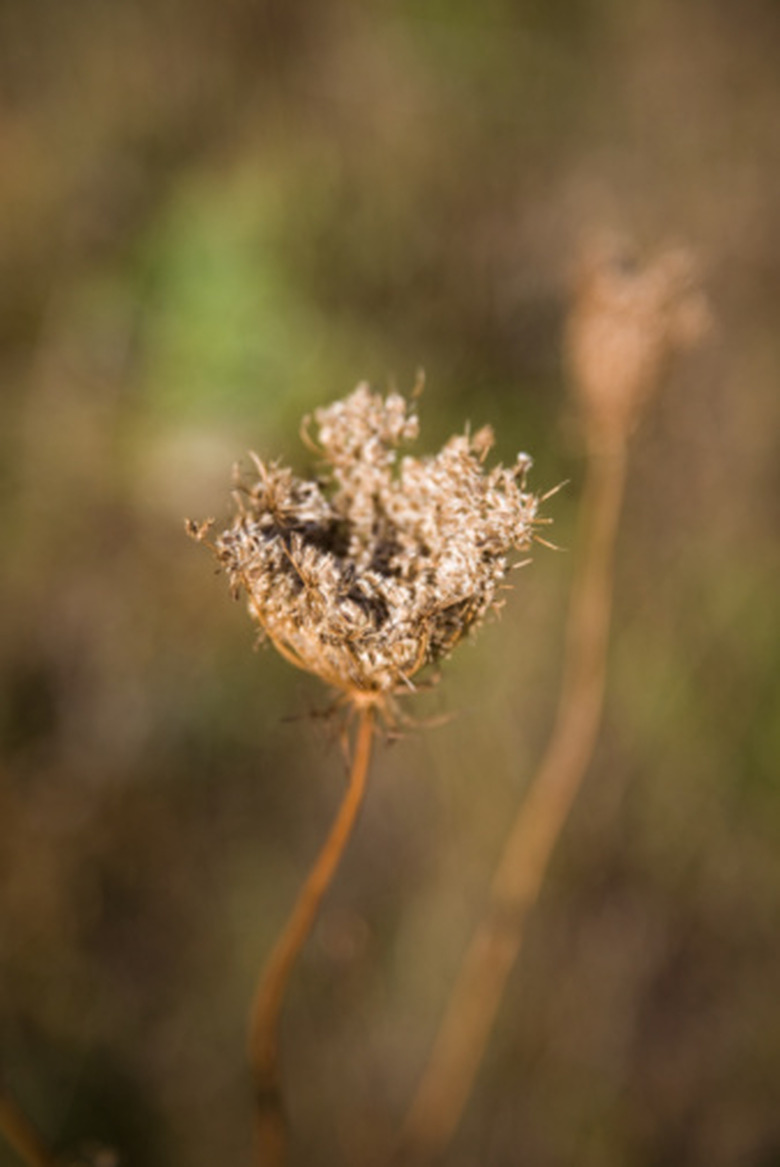List Of Chemicals Used To Kill Trees And Plants
While green thumbs, gardeners and landscapers spend most of their time keeping plants alive, occasionally invasive or undesirable plants and trees put desirable plants at risk. When this happens, it may be necessary to apply chemicals. Because chemicals can harm animals, waterways and ecosystems, choose plant-killing chemicals only as a last resort. Turn to digging, mulching, cutting and organic remedies whenever possible. Always consult a chemical's warning label and use them with caution.
Glyphosate
Glyphosate
According to Texas A&M University's AgriLife extension, glyphosate is the least toxic of all plant-killing herbicides. Glyphosate kills on contact by entering a plant's biological system and killing from the roots up. By applying the chemical to specific plants only, gardeners can avoid harming nearby vegetation as glyphosate deactivates when it touches soil. Glyphosate is effective against many sorts of plants, including foliage, trees, weeds and invasive species.
Dicamba
Dicamba
Dicamba, a benzoic acid-based herbicide, controls annual and perennial broadleaf weeds. Applied to leaves or soil, dicamba kills weeds before and after they sprout. Dicamba also kills legumes, so some gardeners should beware. It is mostly applied to crops, grasslands and pastures. Used in combination with other herbicides or phenoxyalkanoic acids, it kills weeds in non-crop areas such as fence rows and roadways. Dicamba also kills trees, especially conifers, when applied to a cut surface in the trunk or stump.
Bromacil
Bromacil
Bromacil kills and controls woody plants, weeds, shrubs and other plant types. Gardeners apply bromacil in the spring season via a water-diluted spray. While the chemical serves as an effective tree and plant killer, it stays in the soil for many years. As such, avoid using bromacil in areas that are close to irrigation ditches or susceptible to standing water. Bromacil may harm nearby desirable vegetation, so use with caution.
2,4-D
2,4-D
One of the most popular plant and tree killing chemicals, gardeners and professionals use 2,4-D to eliminate everything from broadleaf weeds to aquatic plants to trees. 2,4-D is dichlorophenoxyacetic acid, which acts as a selective herbicide. The chemical protects crops on the farm and controls weeds and invasive plants at home and in forests. Some homeowners use 2,4-D to control weeds in turf grass as it targets turf grass weeds and invasive species without damaging desirable native grasses.
References
- Texas A&M AgriLife Extension: The "Friendly" Plant Killer of Choice
- Washington State University Extension: Chemical Weed Control for Home Grounds
- Cornell Extoxnet: Dicamba
- Washington State University Extension: Chemical Control for Woody Plants, Stumps and Trees
- Industry Task Force on 2,4-D: Primary Uses
